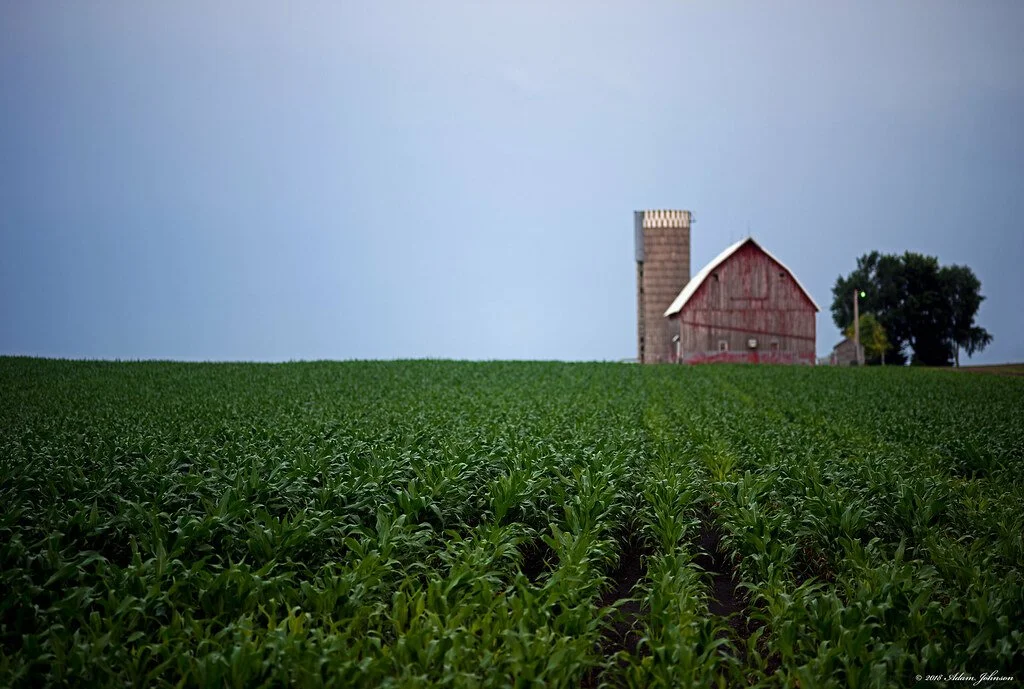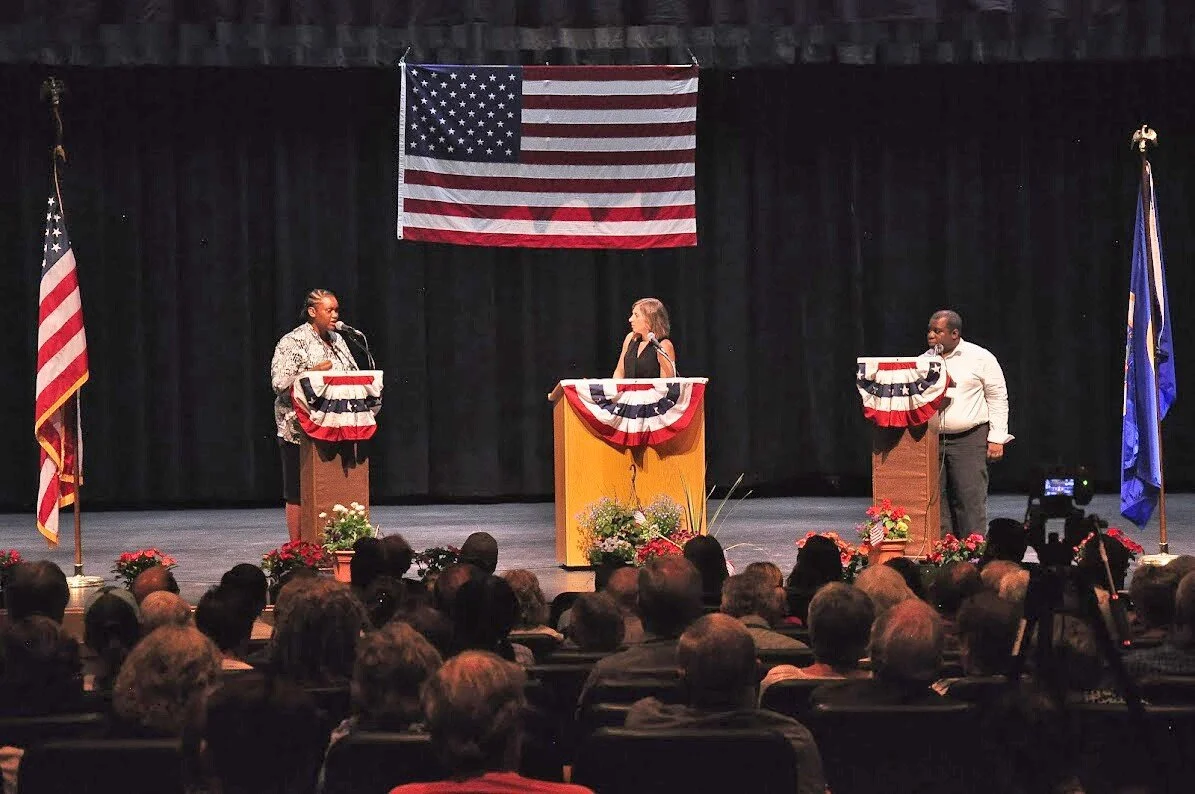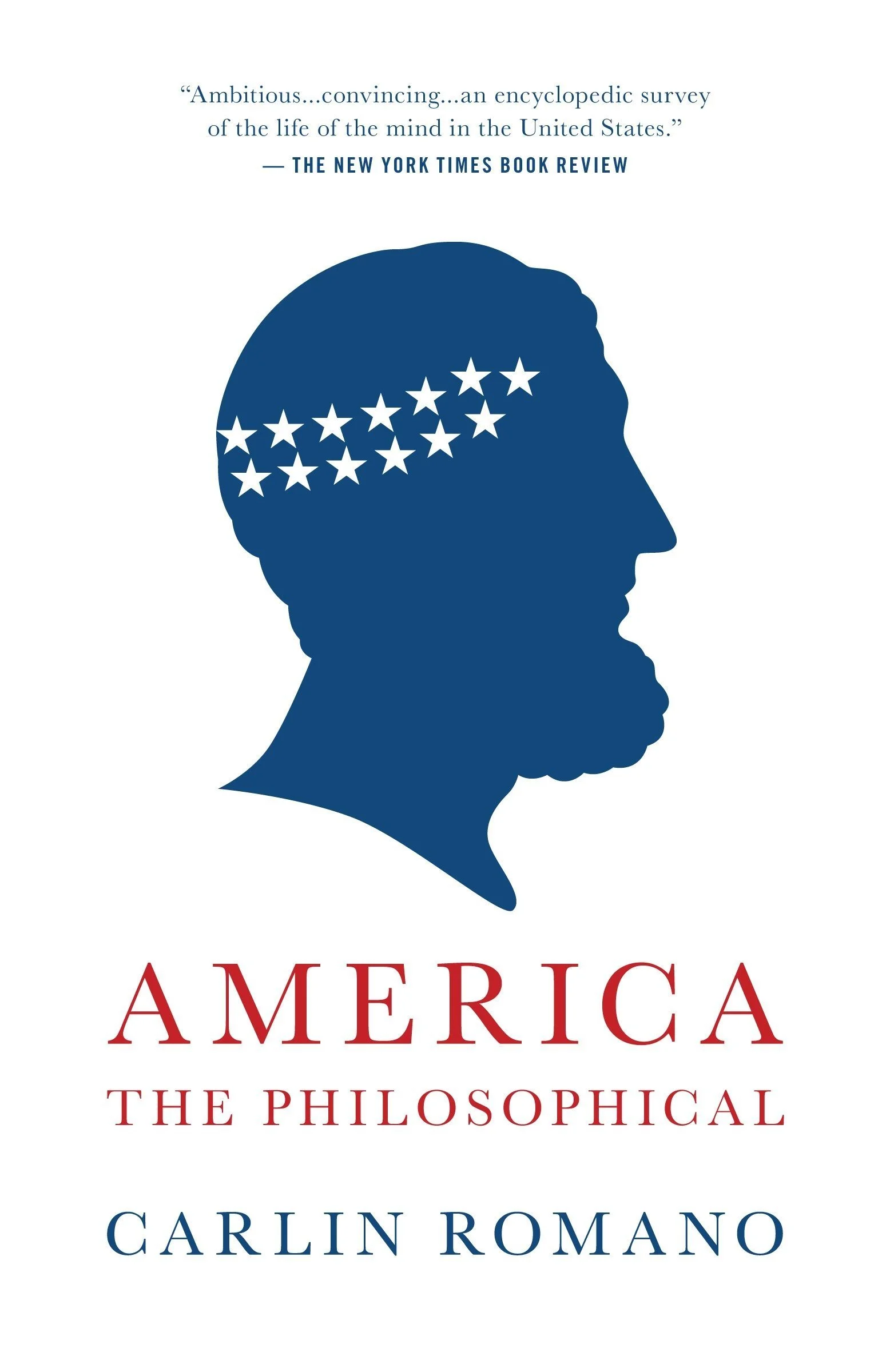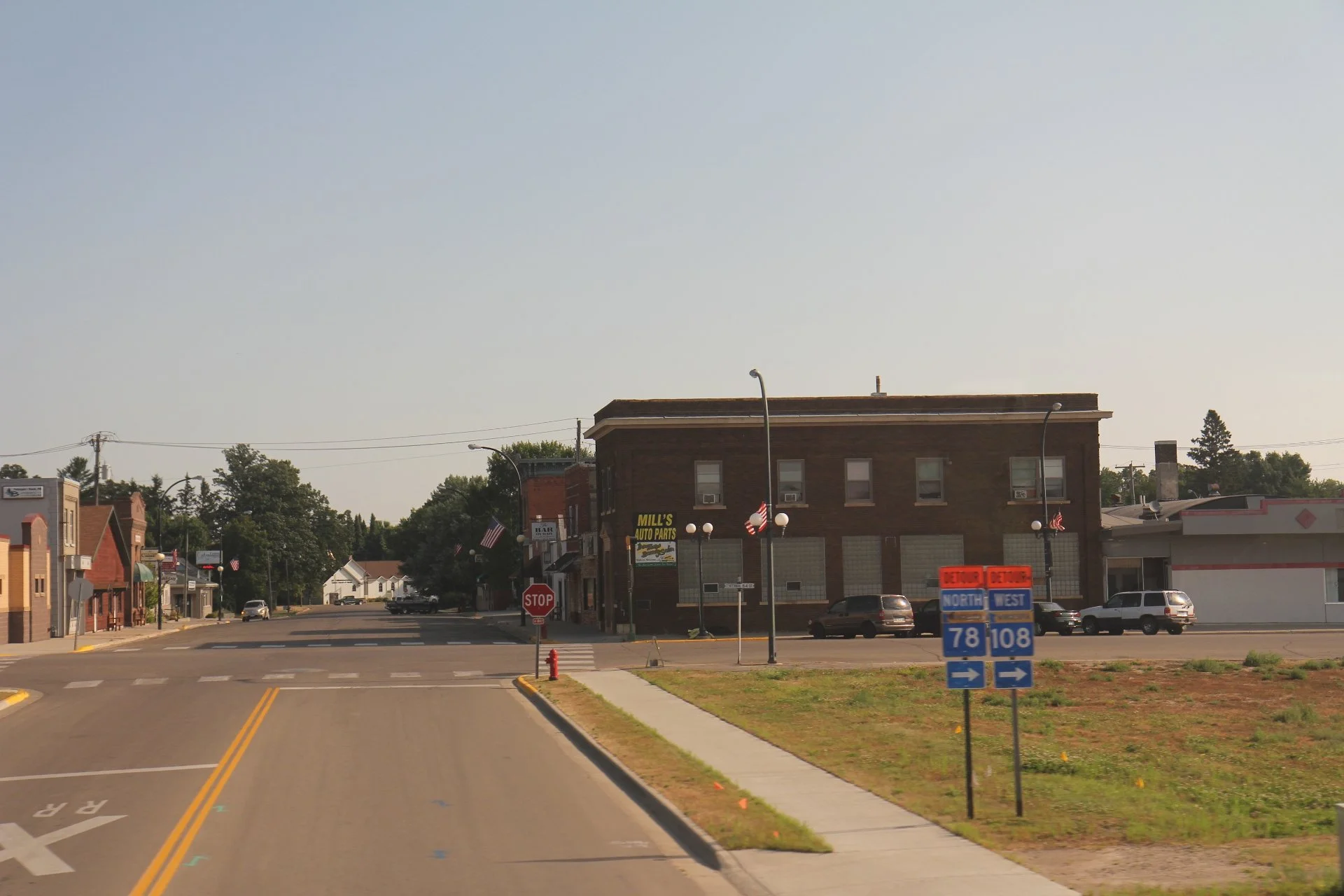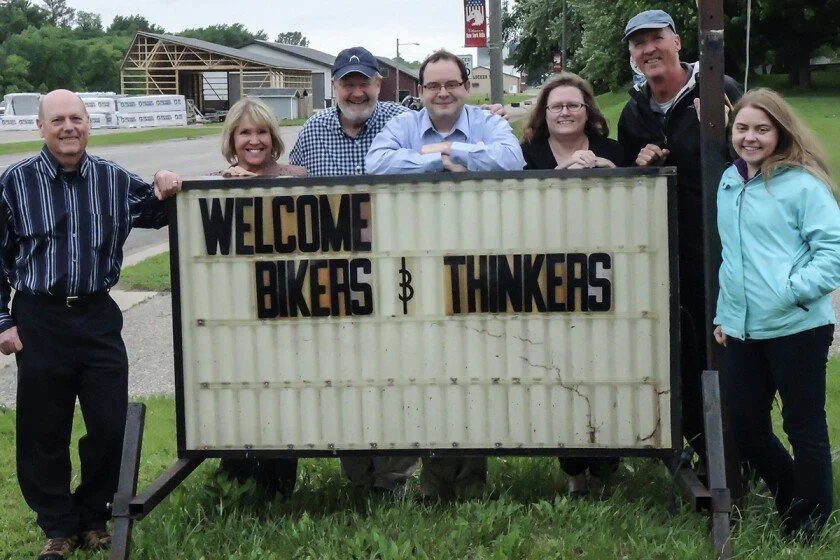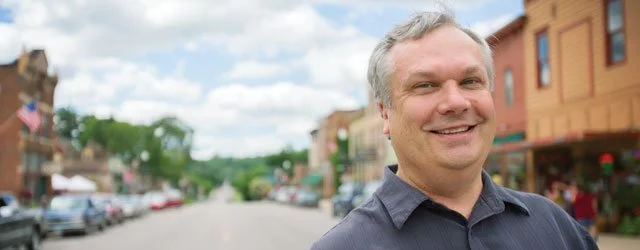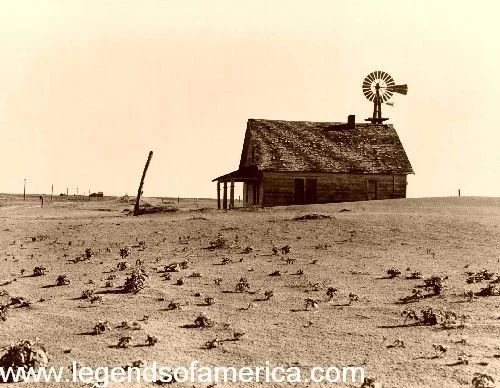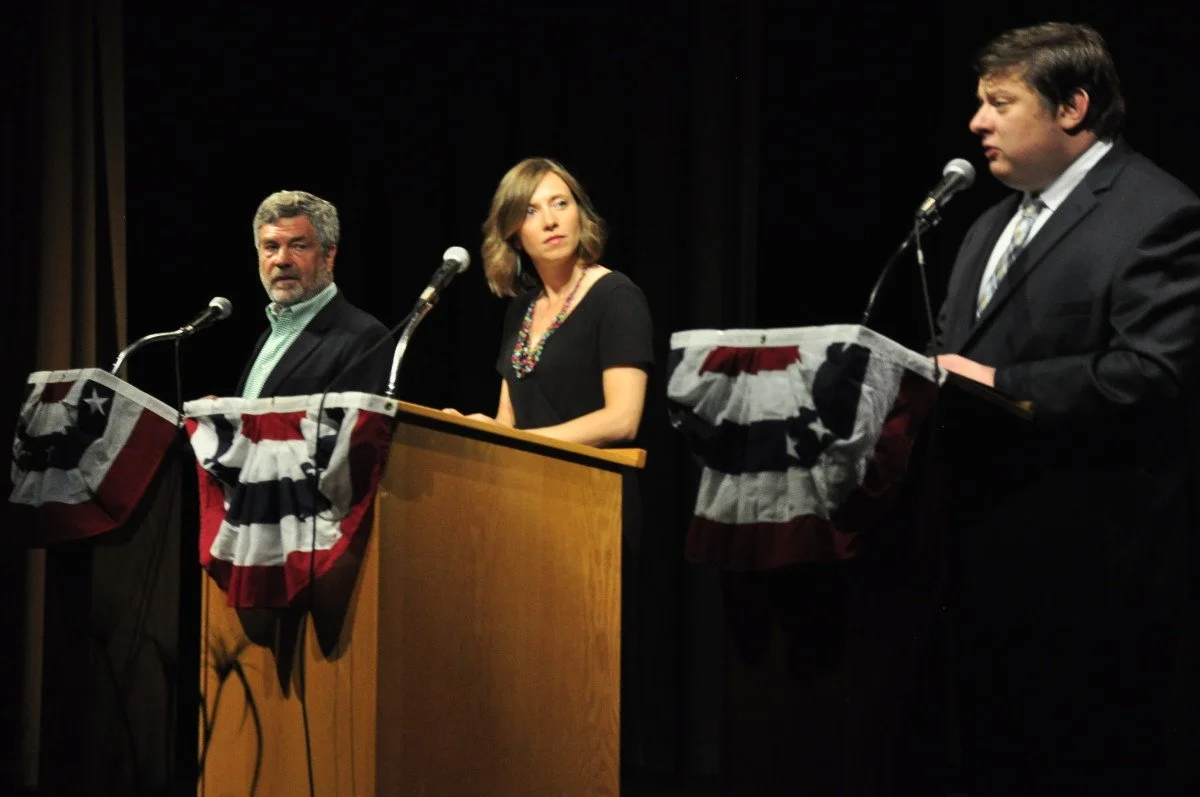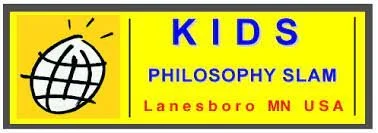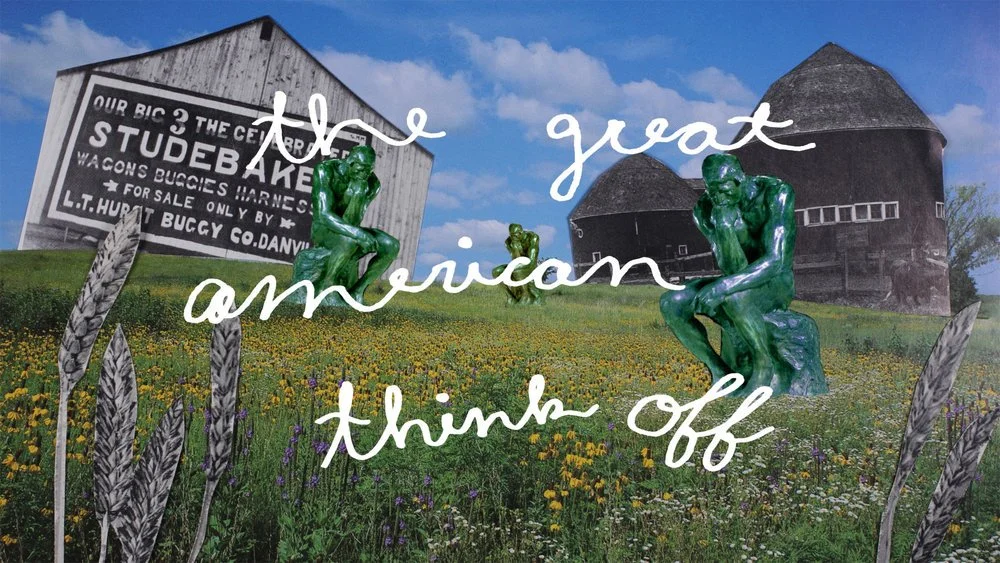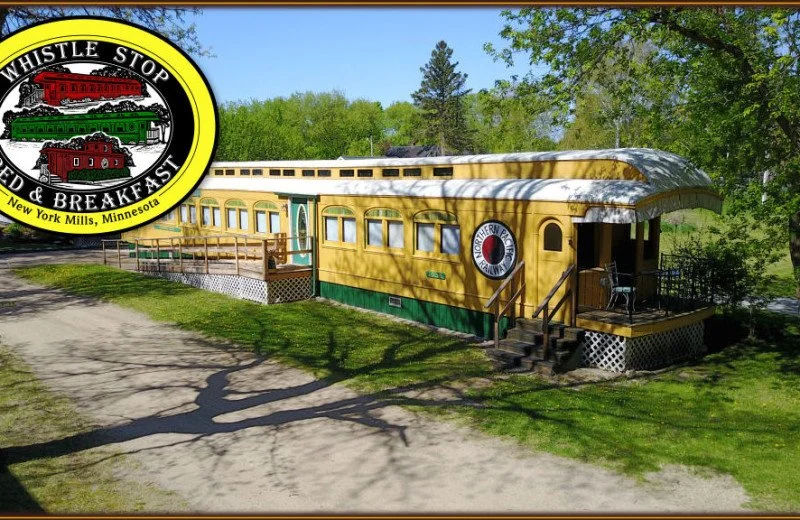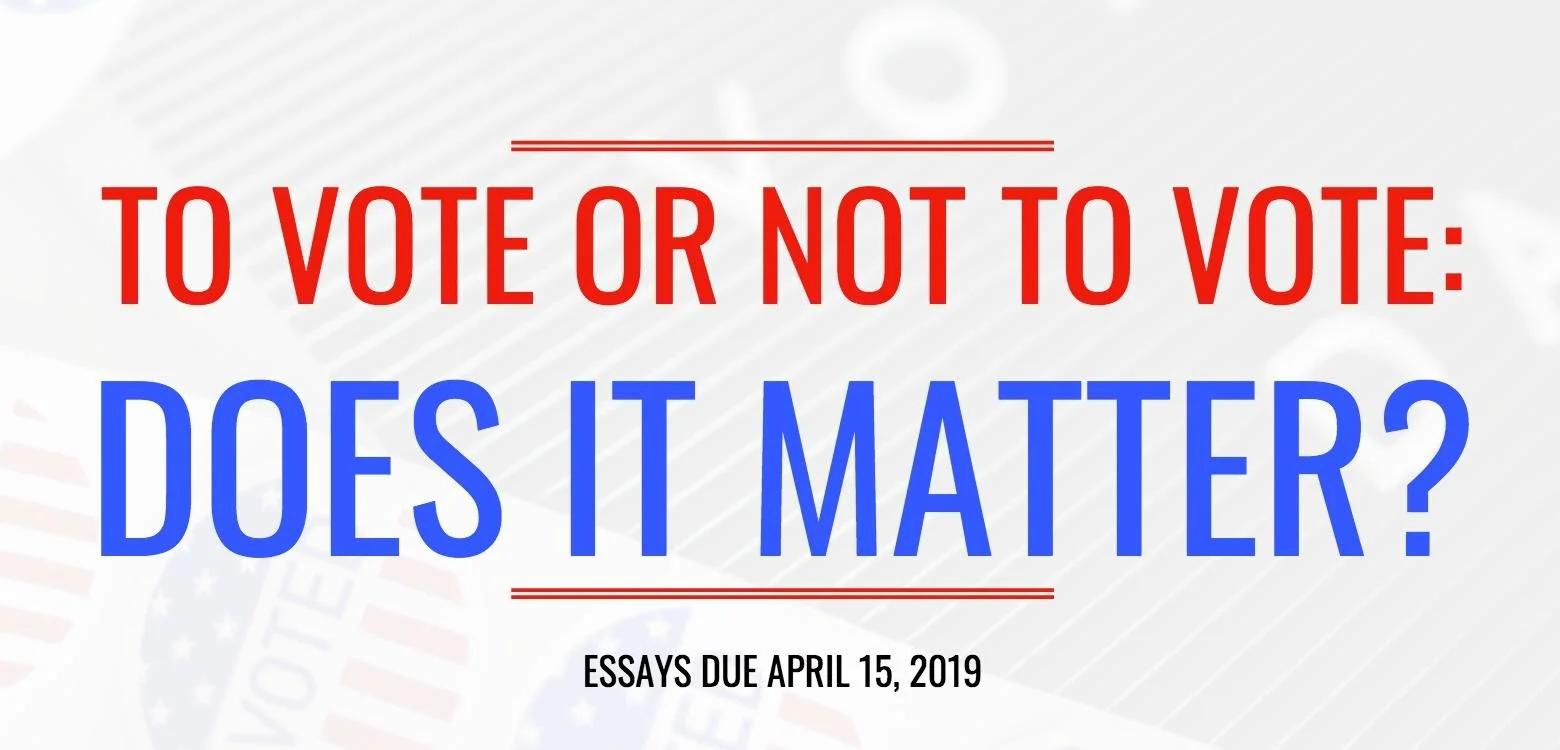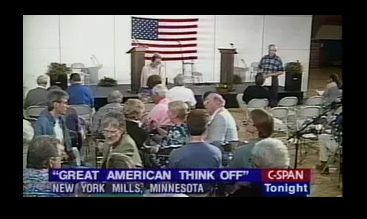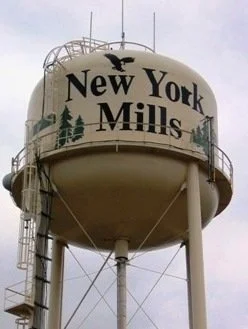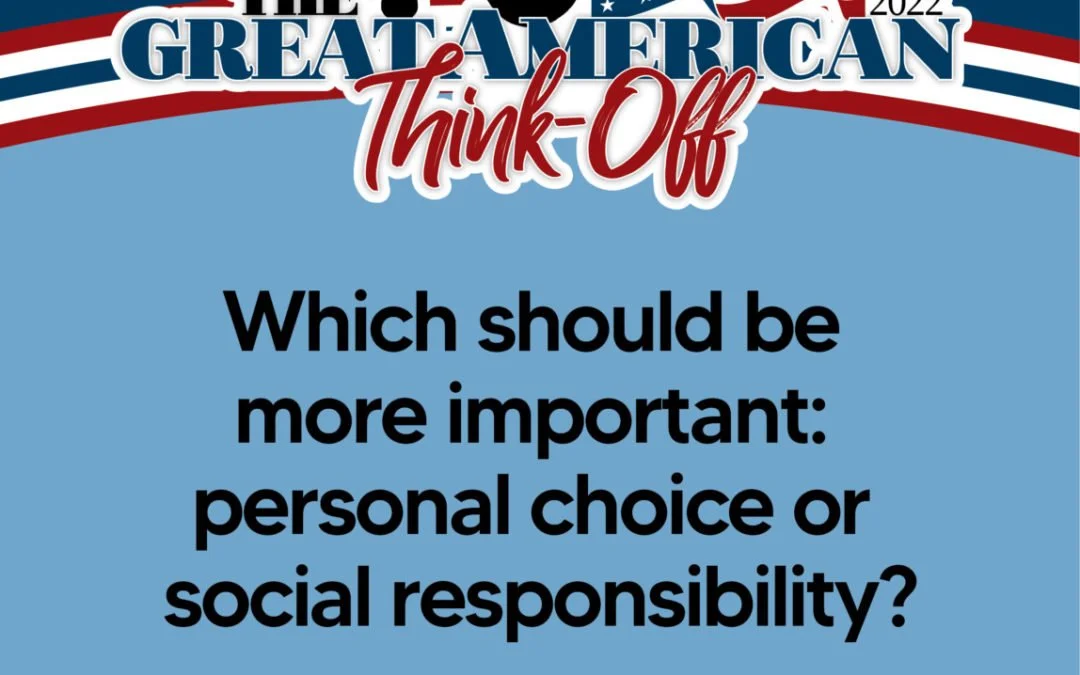WHO IS AMERICA'S GREATEST THINKER?
NEW YORK MILLS, MN — SECOND SATURDAY IN JUNE — Across the Plains, spring is melting into summer. Corn is knee-high and farmers are in high season. But in one prairie town, hundreds have gathered in the spirit of Socrates.
All rise for the “Star Spangled Banner.” Introductions follow, then thanks and announcements. Finally, the moderator says, “Let’s think!”
“America the Philosophical” said a book by that name, sounds like “a dead-on-arrival concept. . . Everyone knows that Americans don’t take philosophy seriously, don’t know much about it.”
New York Mills (pop. 1,294) begs to differ. Here, just down the road from Nimrod and Motley and Battle Lake, this little town thinks thinking should be as American as apple pie. The Great American Think-off, says Alice Martin, chair of its committee, aims “to get the common man or woman to respond. We don’t discourage philosophers, mind you, but we’re definitely looking for people in ordinary life.”
This year’s Think-off, the 29th annual, convenes on June 11 in the high school auditorium. Before the usual full house, a Silicon Valley techie, a children’s book writer, a mortgage specialist, and an IT pro will debate: Which should be more important: personal choice or social responsibility? The winner, by audience vote, will take home the title America’s Greatest Thinker. Noam Chomsky, eat your heart out.
What sounds like a Lake Wobegon gag is an idea of pure prairie brilliance. Sartre might not have thought the Think-off great but from the “Star Spangled Banner” to its patriotic bunting, the event is decidedly American. Just as John Davis designed it.
Davis grew up on these plains, the son of “hippie intellectuals.” After studying art, he yearned to farm, but could only afford land in remote New York Mills. Arriving in 1987, Davis saw boarded up buildings, declining population, not much goin’ on.
“In small towns, the tendency is for the cultural life to spiral up or spiral down,” Davis said. “I wanted to create an upward spiral here.” In 1990, Davis convinced town leaders to turn an abandoned building into the New York Mills Regional Cultural Center. Smack dab between the laundromat and the library, the center began hosting gallery shows, poetry readings, and other homegrown arts. Then Davis had a brighter idea.
A philosophy debate? In New York Mills? The Chamber of Commerce was polite but Davis saw them smirking. Undaunted, he sent out a call for essays, 750 words maximum, on the topic “Is Humanity Inherently Good or Evil?”
A hundred-plus entries came from ten states. Four finalists -- a high school cheerleader, a priest, a newspaper publisher and a cop – debated before an overflow crowd at the Cultural Center. What is humanity’s true nature? The audience vote ended in a tie, but that first Think-off got people thinking. Maybe there’s a little Aristotle in all of us?
June after June, the annual Think-off wrestled with deep questions.
1994 — Does life have meaning? The debate was close but the audience sided with a commercial fisherman. Yes, life does have meaning. (Whew!)
1995 — Money or morality — which does society value more? A stenographer and a young Eagle Scout backed morality, but the audience favored a grad student and UPS driver. Money.
1996: Does God exist? With the Think-off making national news, 700 entries poured in. The debate was impassioned, the audience challenged. The vote — 107-49 — sided with God. There were many abstentions.
John Davis moved on to other philosophical fun, including a Kids Philosophy Slam and, in his Airstream trailer, the Stream of Thought Philosophy Tour. But the seed he planted continues to thrive.
Each January 1, the Think-off committee announces the year’s question. Hundreds of essays, due in April, arrive. Some come from overseas, but most are from everyday Americans. Teachers. Bank clerks. Farmers. And a surprising number of prisoners. On the second weekend of June, four finalists come to town, staying in the restored train cars of the Whistle Stop BnB.
Come Saturday night, thinker presents their essays, then field questions. The audience chooses the better of each side for a head-to-head, then votes, as instructed, “for who makes the best argument, not necessarily the belief you came here with.” Cub Scouts collect the ballots. Along with anointing America’s Greatest Thinker, the Think-off delivers a de facto vote, straight from the Heartland, on timeless questions.
2006 — Which is more valuable to society — safety or freedom? (Freedom, hands down.)
2007 — Which should you trust more — your head or your heart? (Heart).
2012 — Is humanity inherently good or evil? (This 1993 question resulted in a tie, but this time evil triumphed.)
2014 — Which motivates us more, love or fear? (After evil’s win, you’ll be relieved to know that Love took this one.)
Previous Think-offs were on C-SPAN but this year’s, like last’s, will be streamed on Youtube.
Though New York Mills now has an Aristotle Avenue, no one claims the Think-off has turned the town into another Athens. Yet when each question is announced, it settles into the soil of daily life. Some local bars put the question on tables. On the golf course, the question is occasionally bantered between holes. Extending Descartes’ “Cogito, ergo sum,” the Think-off suggests that towns, like people, must think in order to be.
“Philosophy,” John Davis said, is “oriented to the academic world.” But why? “Why not pose big questions to average people?” And when asked a follow-up — Why New York Mills, Davis answers, “Why not New York Mills?”
